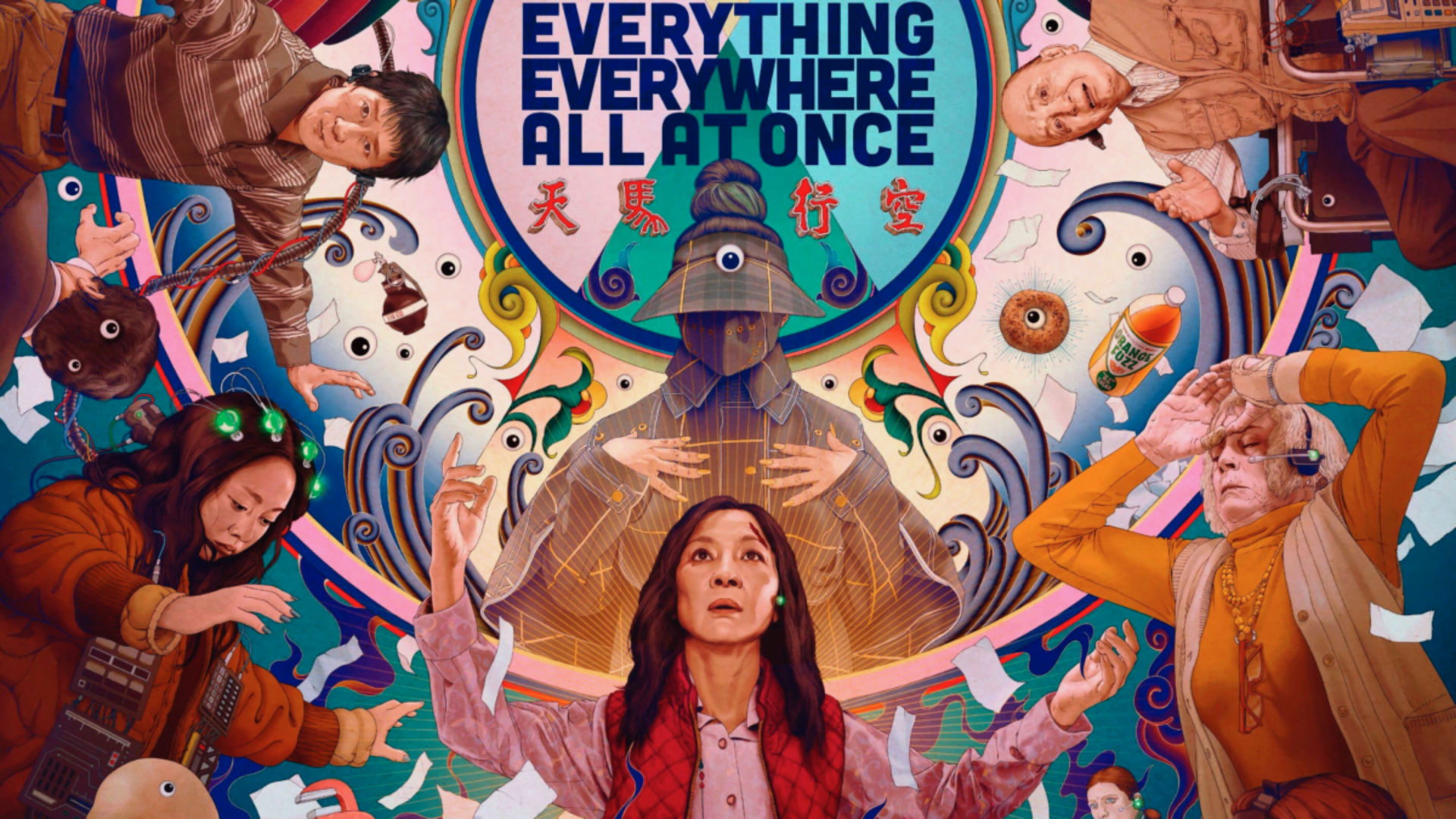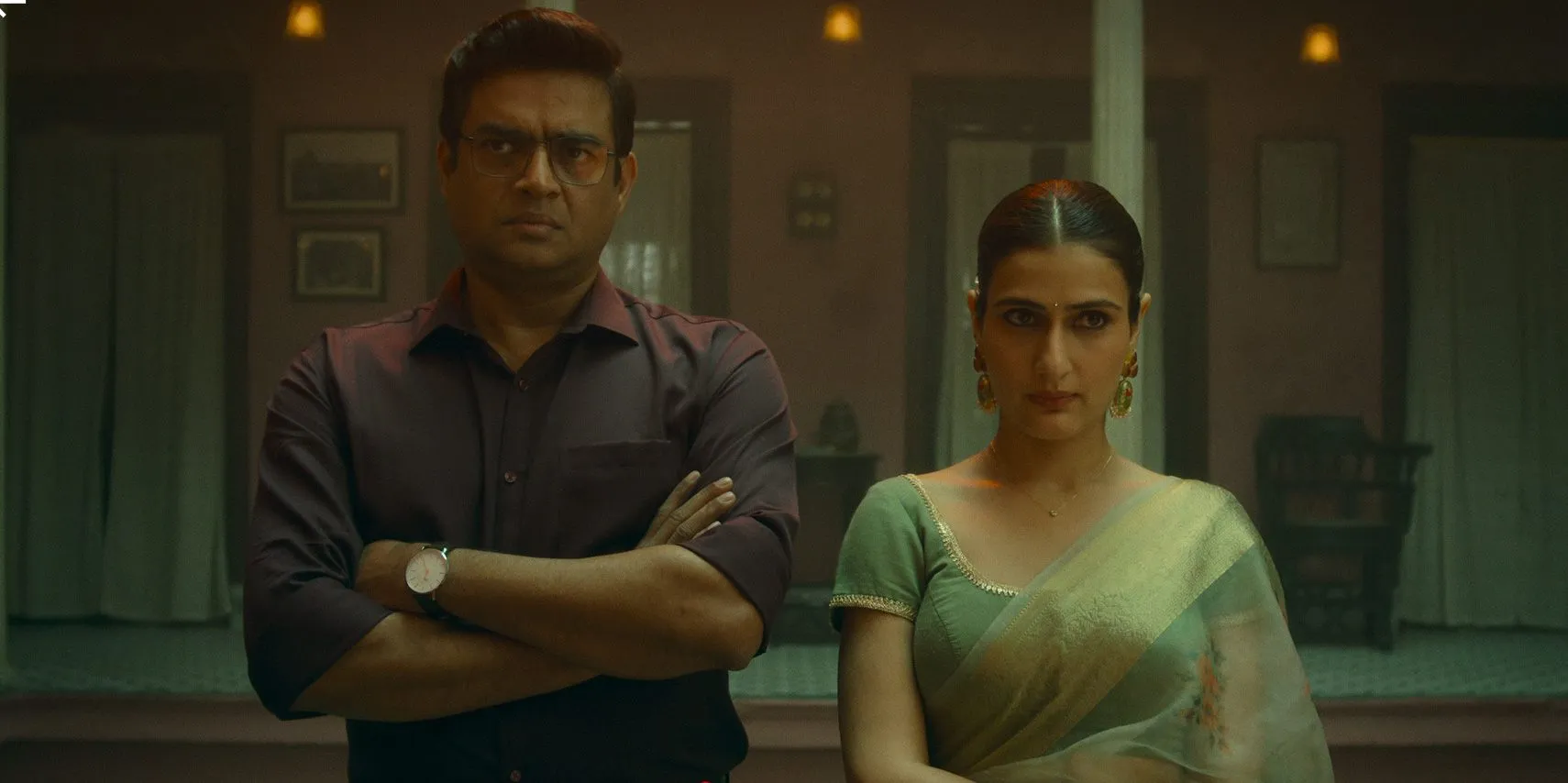Very few films succinctly capture every emotion and feeling an entire generation, more or less, possesses. Two of those were released this year, namely, ‘Everything Everywhere All At Once’ and ‘The Worst Person in The World’. Their long titles themselves reflect the messiness and the ‘tough to summarise’ characters of the movies.
Both the movies have female protagonists, and both of them are far from your typical heroines. Calling them ‘flawed’ or ‘grey’ would be a cliché and disservice to both of them. They are so unique to a particular generation yet so timeless.
Very few films succinctly capture every emotion and feeling an entire generation, more or less, possesses. Two of those were released this year, namely, ‘Everything Everywhere All At Once’ and ‘The Worst Person in The World’. Their long titles themselves reflect the messiness and the ‘tough to summarise’ characters of the movies.
Evelyn (Everything Everywhere All At Once) and Julie (The Worst Person in The World) are too dreamy, distracted, and dilettante for their own good. Julie was a brilliant student who got into a medical college but threw it all out when she realised she wanted to deal with the human ‘soul’ and not human ‘anatomy’. It seems cringe to think like that when you are 30, but you are not 30, not at that point of time when you think like that.
Your brain is too idealistic to be so boring and clinical. We despised such realistic oldies and called them boomers back then. Julie soon realises how uninteresting even the human ‘soul’ is when wrapped around the terminologies and gibberish of an academic discipline, that is, Psychology. She jumps off to her next hobby, that is, photography, all along supported by her patient single mother. Meanwhile, her relationships and interests in men last as long as her interest in her new passion, till she finds herself settled with one and working in a bookstore. Her greatest achievement by the time she reached 30 was the one feminist article she published on a website. Relatable much?
Both the movies have female protagonists, and both of them are far from your typical heroines. Calling them ‘flawed’ or ‘grey’ would be a cliché and disservice to both of them. They are so unique to a particular generation yet so timeless.
Evelyn, on the other hand, is in her late 40s. She works in a laundromat and has a husband and a daughter. The work is tedious, customers are painful, and her life is drab and boring, nothing like she expected when she was young and moved from China to the US with her partner. Early in the movie, we are shown that Evylen has several interests, she bought a karaoke machine, joined a teaching class, and did a cooking class, but reality has its own cruel way of creeping up.
So, Evelyn never pursued any of her interests with the full commitment to turning them into a profession or at least monetising those. Thus they remained just ‘hobbies’ with no tangible benefits. She has been called the worst version of herself in the metaverse full of the better and accomplished version of ‘Evelyns’ who have achieved everything that our protagonist could not. Evelyn shows that there is no definite age to come of age.
These ostracised women could not find bliss in a supposedly happy married life while they also stuttered their way on to becoming the financially independent and strong women that they dreamt of. This in-betweenness, the feeling of being neither here nor there, becomes the source of unfathomable sorrow, meaninglessness as well as a very female-specific alienation.
Noah Baumbach made ‘Frances Ha’ back in 2012, which had a female protagonist who was in a constant struggle against the mediocrity she had thirsted upon herself. When asked what she does for a living? She replies with a hesitant “it’s hard to explain”. When asked, “Is it because what you do is complicated?” She says, “No, because I don’t really do it”. This string of conversations is not only sardonic but also encapsulates the heart of the movie and resonates with many.
Why have these stories suddenly found so much resonance in our times? What exactly has changed?
The choice of a female lead
One of the most common things about these movies, which are usually thrown into the category of “coming-of-age”, is that most of them have female protagonists. It asks the question, why is this binary feeling of “everything and nothing” best conveyed through a female character?
Julie summarises this feeling in one of her statements where she says, “I feel like I am playing a supporting character in my own movie”. It is true for many of us who lack the essential qualities of the main character by being neither extremely good nor bad, neither talented nor dull, neither everything nor nothing.
One answer could be found in the ‘Post-feminism’ that had been thirsted on the women who were born in the 90s and also faced the brutal reality of the #metoo era while growing up and after they were grown-ups. Women felt both the false promises of post-feminism and the totally different reality up close. They were confused about their feminism, is it too much? Am I being too much by holding to an ideology that is being discarded even by several women as dated and unnecessary?
These ostracised women could not find bliss in a supposedly happy married life while they also stuttered their way on to becoming the financially independent and strong women that they dreamt of. This in-betweenness, the feeling of being neither here nor there, becomes the source of unfathomable sorrow, meaninglessness as well as a very female-specific alienation.
/cdn.vox-cdn.com/uploads/chorus_asset/file/23309259/p.png)
Julie summarises this feeling in one of her statements where she says, “I feel like I am playing a supporting character in my own movie”. It is true for many of us who lack the essential qualities of the main character by being neither extremely good nor bad, neither talented nor dull, neither everything nor nothing.
Society and the market tell you that 30 is the deadline for ‘dreams’ and ‘passions’. If you have not monetised your passion or have a job without passion by then, you are a failure, a reject, a disgrace. And there is a newer, younger, and better generation that can replace you.
But this is the lot where filmmakers are finding their most viable and reliable characters now. These people, especially women with so much untapped potential, so many feelings, and a variety of emotions, make up for the “not-so-rich” lives that they lead.
The rejects of capitalism
Another common theme that runs in these movies is the financial struggle that the protagonist faces. Most of the time, either they are on minimum wage, or they are into financially unviable jobs. They are poor without looking poor. Julie, as was shown in the movie, was a brilliant student, but she ended up working in a bookstore. She is too dreamy and distracted and was fed on the generational idea of “follow your dreams” and “passion as jobs”. She could not find joy in anything when it was turned into routine.
Julie’s mother, on the other hand, was single and had no help from her father in raising her, her grandmother was an achiever too, and her great-great-great-great…grandmother died before reaching 30. This generational baggage was on Julie’s mind. There are mostly three types of generations at any point in time: the explorer, the settler, and the reaper. While the generation we call ‘boomers’ married early and had children before even reaching their 25th birthday, they did not have the time to think about what they like or don’t like. They were after a well-paying or at least paying job to run the household. In other words, they were the settlers.

The millennials, on the other hand, being born in well-fed households, had the time and leisure to think of passion and dreams, and they were being raised at a time when capitalism was raising its head across the world.
The 1990s saw the victory of capitalism over communism. Markets were opening up, and so were the internet, advertisements, and pop culture. The old meanings fell into disuse, new meanings came up, feminism became a creed, and racism and homophobia became unfashionable. Millennials are the explorers that have questioned many dated assumptions with the solidarity they found over digital mediums across the world.
The next generation, that is, Gen Z would supposedly reap the benefits of the expansion of ideas and horizons that were set in motion by millennials. It is not to say that these are hard-and-fast categories, and one can find settler, explorer, and reaper individuals within a generation itself. Though the categorisation might seem arbitrary and sweeping yet this is how the generations have been shown in pop culture.
These movies are made keeping the millennial’s anxiety and sense of loss in mind. It’s a generation that suddenly woke up to the fact that they have turned 30, and the warm cosy blanket and label of being in their 20s have been snatched away from them forever, and now they are supposed to be and act like an adult.
Society and the market tell you that 30 is the deadline for ‘dreams’ and ‘passions’. If you have not monetised your passion or have a job without passion by then, you are a failure, a reject, a disgrace. And there is a newer, younger, and better generation that can replace you.
This sudden realisation was beautifully captured when Julie takes a stroll on the streets after coming out of a party for her uber-successful cartoonist boyfriend and finds herself in tears. She is not crying out loudly, nor is she weeping profusely. These are the tears that come from the profound meaninglessness that the brain feels while your heart is overwhelmed with so many things you like or want. The tension between these paradoxical feelings makes one feel lonely and longing for something all the time.
The final self-acceptance
While Everything Everywhere All At Once ends on the positive note of self-acceptance and being in the present as Evelyn chooses her supposedly ‘worst’ version over all others because it had her husband and daughter in it, Julie from The Worst Person in The World did not have a conclusive feeling at the end. She is shown living alone in a studio apartment and pursuing photography as a career, but also checking out closely the photos of the girlfriend of her ex-boyfriend.
Also read: 10 Feminist OTT Shows In 2020 That You Must Not Miss
This indicates that Julie might not have “grown” at all. She might still dwell on something she doesn’t have or can’t have and desire something she no longer has while feeling dissatisfied with the things that she already has. Unlike Evelyn, who has understood how to tame her volatile and wandering mind, Julie might not have reached that point yet. And it shows how real lives are. It’s not a two-hour movie with a linear story and a conclusive ending. It is life with all its messiness and drudgery, and how people take their own time to figure things out that will not necessarily resonate with what society figures for them.
Also read: 8 Series For The Feminist In You To Binge-Watch
Rishija Singh can be contacted at rishijasingh24@gmail.com
Featured image source: EastMojo





